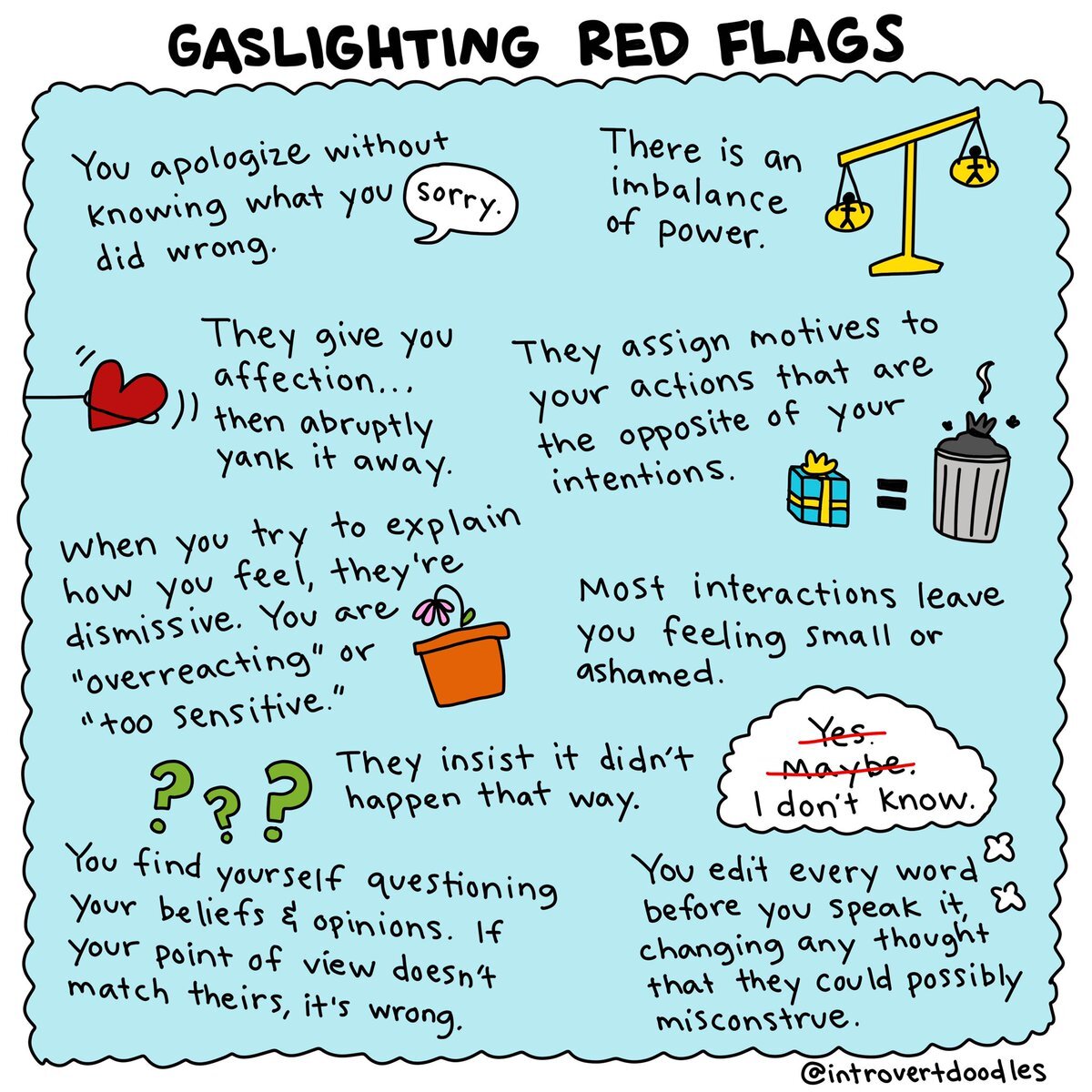Phrases like “I never said that!” or “That’s a lie, you’re being crazy right now.” are not uncommon. However, these very phrases are often used to dismiss someone’s concerns and confrontations. And they are used to manipulate someone into believing that they’re ‘crazy’ or deluded, or that something is fundamentally wrong with them. This is Gaslighting.

Gaslighting is manipulation and a form of emotional abuse. It is a tactic people use to sow seeds of doubt into a person’s head, and make them question their own sanity, and their own perception of things and events. There are many subtle forms of gaslighting which include lying, denying, projecting, verbal abuse etc.
But why is it called ‘Gaslighting?’
It comes from the British play called ‘Gas Light’. Gas Light was about the manipulation of a woman by her husband. The husband tries to convince her that she’s being delusional when she points out the changes in their environment. He keeps dimming the gas lights at their house, and making other small changes in the house and making noise, but denying when his wife asks him. And the protagonist did this in order to convince her that she’s going ‘crazy’ and that she needs to be admitted into a mental asylum. He did all this so that he could get her inheritance.

As a result, the victim was second-guessing herself and thought she was losing her mind. After the success of the play, the term ‘gaslighting’ became a colloquial term especially since the 1960s.
Gaslighting is the type of emotional abuse that involves using misinformation, lying, and making conscious efforts to make the victim doubt themselves. This leads to the victim developing low self-esteem and constantly doubting themselves. Gaslighting depends on “first convincing the victim that his thinking is distorted and secondly persuading him that the victimizer’s ideas are the correct and true ones”.
SIGNS AND METHODS OF GASLIGHTING
In this article, Psychologist Elinor Greenberg writes the three methods of gaslighting. She says that the three methods are, “hiding, change and control.”
Hiding: The abuser will attempt to hide things, and try to cover up the things they’ve done. However, along with this, they will also may turn the blame onto the victim and make the victim doubt themselves and their reasons. For example, if you catch your partner sneakily texting other people, and if you confront them, they will lie, and blame you for not trusting them and then will guilt you in believing that you were wrong for doubting them.
Change: In a relationship, the abuser will always ask the victim to change something about themselves. Whether it’s their personality traits or how they look like. Even if the victim refuses to make these changes, the abuser will make sure that the victim knows that they’re not ‘good enough’ and that the abuser can always find ‘someone better.’
Control: The abuser, here, would fully control what you do, where you go, and even whom you meet. They usually want you to be away from the people you admire a lot and whose opinions matter to you. They do this by arguing that you don’t need xyz in your life. Or that you’re too attached to your family. By doing this, they slowly but surely start to gain control over every aspect of your life. And they do so by putting it in better words. They will usually say, “I’m doing this for your benefit!”
OTHER METHODS CAN INCLUDE:

Shifting Blame: The abuser will ALWAYS find ways to shift the blame onto the victim. They will do so in many discreet ways. Every discussion or even confrontation will end up the same way. The abuser will always feel guilty, as though they have committed a crime. There is no accountability from the abuser at all.
Trivializing emotions: The abuser will trivialize and minimize the victim’s opinions, likes and dislikes. They will tone-police the victim and claim that they’re being overly sensitive or that their opinions are never good enough. They will make the victim feel like they don’t know anything.
Lying: This is possibly the most obvious tactic. The abusers will consistently lie to the victim about EVERYTHING. And even when they are caught,they will deny it and shift the blame onto the victim.
EFFECTS OF GASLIGHTING
Gaslighting can have a huge impact on one’s identity, as a whole. The reason why gaslighting is very dangerous is because it is a slow but sure process to take away people’s sense of self. It causes the victims to second-guess themselves at every turn. They don’t trust themselves and completely trust the abuser. The victims will doubt themselves and find ways to believe the abuser rather than themselves.
Rogers and Follingstand examined women’s experiences with psychological abuse as a predictor of symptoms and clinical levels of depression, anxiety, and somatization, as well as suicidal ideation and life functioning. They concluded that psychological abuse affects women’s mental health outcomes, but the perceived negative changes in one’s traits, problematic relationship schemas, and response styles were stronger indicators of mental health outcomes than the actual abuse.
Follingstad, Diane R.; Rogers, M. Jill (2014-08-01). “Women’s Exposure to Psychological Abuse: Does That Experience Predict Mental Health Outcomes?”.
Gaslighting is an extremely intense form of emotional abuse. It requires a lot to notice that you’re being gaslighted because initially, it doesn’t seem like anything’s wrong. It also takes a lot to remove oneself from the gaslighter/abuser. The best way to go about it is to consult a therapist. Therapy helps people connect with themselves. Pause for Perspective is a trauma-informed organization, and our team is trained to deal with issues of trauma, emotional abuse and gaslighting. DM us on Instagram or 9490708947 to book a session with us!
—
Omaiha Walajahi
Writer
Pause For Perspective
